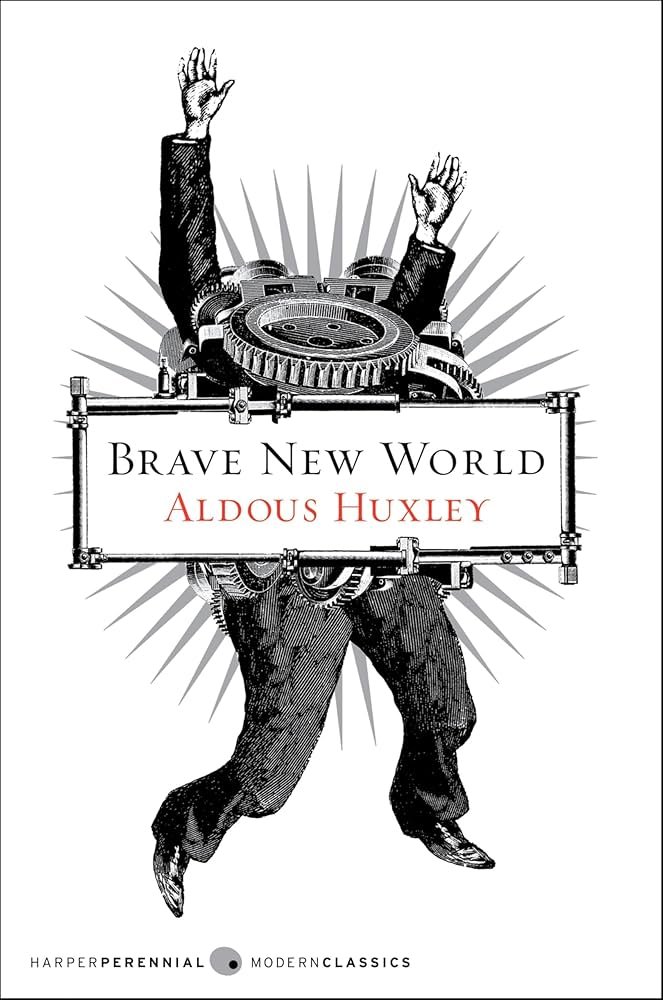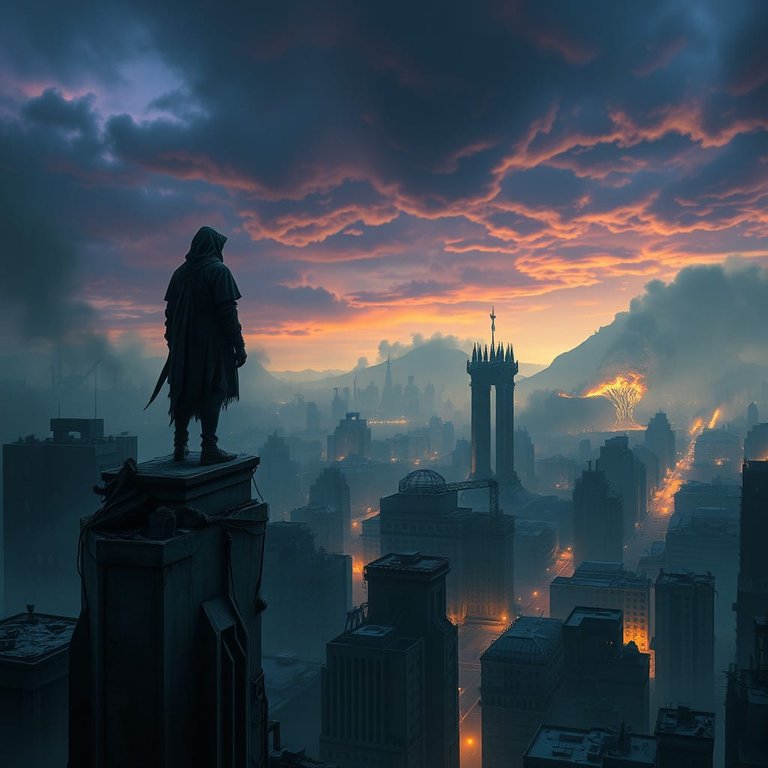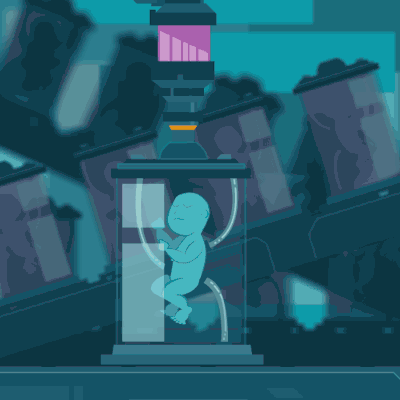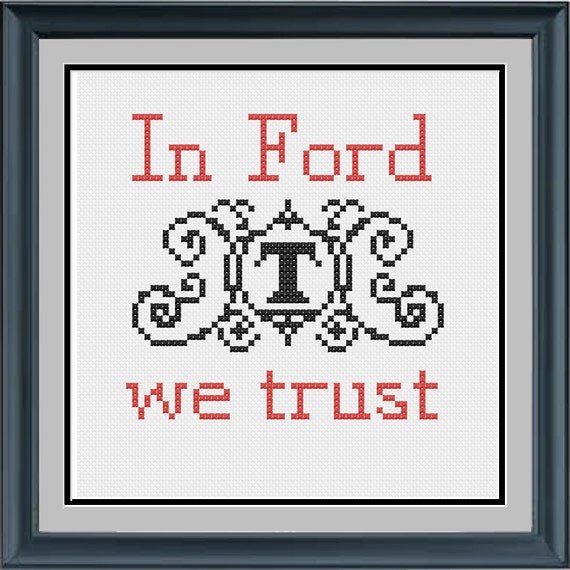How Brave New World Resonates with Today...
 (Source: https://www.amazon.ca/Brave-New-World-Aldous-Huxley/dp/0060850523)
(Source: https://www.amazon.ca/Brave-New-World-Aldous-Huxley/dp/0060850523)
This was my second time reading Brave New World. I did not pay much attention during my first read, but my second time around, I was absolutely appalled by the similarities between Huxley's "utopia" and the current state of our society.
Upon opening the book, we are immediately greeted with a New World Order, so to speak. A lot of people enjoy comparing our history and government to 1984; there are those who believe that it is our imminent future.
Meanwhile, this could not be the furthest thing from the truth. We will be -- we are living -- in a Brave New World.
What's more, Huxley even took the liberty of drawing it all out for us simpletons, in the very beginning. Being the genius that he was, Huxley deliberately included the plan amid a mess of chaos and distractions. The reader needs to pay attention if they wish to decipher the message. It begins about halfway through Chapter 3. You will find it very reminiscent of today...
["Stability. ... The primal and the ultimate need."
"No pains have been spared to make your lives emotionally easy ... from having emotions at all."
"There was something called liberalism. ... passed a law against sleep teaching. ... There was something called democracy."
"Then the Nine Year War began."
"There was a choice between World Control and destruction."
 (Image created using an AI art generator on Night Cafe)
(Image created using an AI art generator on Night Cafe)
"You couldn't do things by force. ... The slower but infinitely surer methods of conditioning."
"Accompanied by a campaign against the Past ... the blowing up of historical monuments."
"They used to take morphia and cocaine. ... Six years later it was being produced commercially."]
The erasure of individualism is perhaps the most important theme in Brave New World.
"All conditioning aims at that: making people like their inescapable social destiny."
 (Source: https://www.sutori.com/en/story/a-brave-new-museum-are-we-there-yet-again--B1x6eDkvPrkXykq8RncgH3Qr)
(Source: https://www.sutori.com/en/story/a-brave-new-museum-are-we-there-yet-again--B1x6eDkvPrkXykq8RncgH3Qr)
There is the reoccurring belief that "everyone belongs to everyone else," which is quite reminiscent of communism. The Controllers begin breaking down the individual prior to conception, determining their status in society and depriving them of the family unit. The Bokanovsky Process, where 96 sets (twins) of the same person are mass-produced. Children engage in sex play. Sleep hypnosis, and thereby social conditioning, is performed from birth to the age of 12.
"62 thousand repetitions in the dark had made them accept, not merely as true, but as ... utterly indisputable."
By the time everyone has reached adulthood, the individual ceases to exist, and has been compromised with societal beliefs.
"'Till at last the child's mind IS these suggestions, and the sum of the suggestions IS the child's mind. ... But all these suggestions are OUR suggestions!"
It is why Chapters 17 and 18 are the most profound in the entire novel: our imminent future is written down for us. It starts with a traumatic event that causes the population to rely on the government.
"What's the point of truth or beauty ... when the anthrax bombs are popping all around you? ... People were ready to have even their appetites controlled then. Anything for a quiet life."
Boundaries are compromised for the sake of comfort, and people will become submissive and willing to make sacrifices. Beauty, art, religion, truth, family -- all will be sacrificed for stability.
Hence why you cannot tell me we are not already headed down that path. Do not try to convince me that our society of childish, indulgent, narcissistic pick-mes have not already sacrificed our morals for their own selfish desires. Do not try and act as if people have not already sacrificed freedoms and autonomy for comfort and security -- remember COVID?
Remember how many people gratefully bent over for the government, over the fucking flu? then told you to bend over and like it?? That crowd nearly cost every single one of us our freedom; extremely reminiscent of Brave New World society.
To prove it further?
"But truth's a menace, science is a public danger."
How many times did we hear, "trust the science" when not a goddamn word of it was truth? How much science did they try to rewrite in order to fit a narrative? Again, you are a fool if you allow yourself to believe the government has your best interests at heart (they don't have one).
There were two other quotes that I found extremely profound...
"An Alpha-conditioned man would go mad if he had to do Epsilon work. ... He can't help himself; he's foredoomed. Even after decanting, he's still inside a bottle."
This is a great example of why communism ultimately always fails; equality does not exist. It needs to be acknowledged that some people will surpass others in certain things. Equality is taking a musical genius like Mozart, and reducing his talents to a high school music teacher because "that's the level the rest of society is at and there needs to be equality." Communism cannot work because equality does not work; we are inherently born onto a disadvantaged playing field. You cannot healthily suppress innate talents and abilities.
The second quote...
"But God doesn't change." "Men do, though."
 (Source: https://www.etsy.com/listing/222186555/pattern-in-ford-we-trust-brave-new-world)
(Source: https://www.etsy.com/listing/222186555/pattern-in-ford-we-trust-brave-new-world)
This is perhaps my favourite line in the entire book. I love this part because I strongly believe that society cannot function without religious structure -- for this very reason why. Religion has given us morals that have been universally agreed upon and have withstood the test of time; man is fickle, indecisive, and easily persuaded. Allowing man to make morals as opposed to God, has given us an age of narcissistic social media, drug-induced zombies (soma, anyone?), and crime-ridden cities.
Our human need for greater purpose still manages to seep its way into Brave New World. Despite all of the conditioning, drugging, and distractions, there are still individuals with the desire for something greater. I think that is the biggest takeaway from the book. Regardless of what we are told to believe, all of our needs being met, human nature -- the soul -- constantly yearns for something more.
 (Source:
(Source: